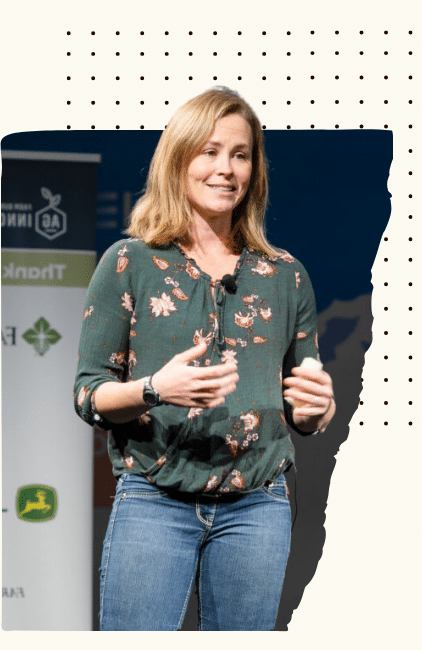Colorado State Grants and Tax Incentives Explained
When it comes to funding startups in rural Colorado, entrepreneurs don’t need to do it all on their own. There are no guarantees, but there is plenty of opportunity for financial boosts that don’t require repayment, negotiating equity, or giving away a stake in your company.
Colorado is regularly ranked among the top 10 best states for small businesses, in no small part due to the guidance and resources provided by the Colorado Office of Economic Development and International Trade (OEDIT).
While OEDIT serves the entire state, two of its top-tier objectives are directly pertinent to rural startups. The first stated goal of the office is to attract and retain rural jobs. A second is to provide support for small businesses through increasing access to capital and providing technical assistance. Both of these goals are supported by OEDIT’s dedicated Rural Opportunity Office.
That’s just one of 14 specialized divisions in OEDIT, each focused on different channels of economic growth in the state. Independently and in coordination, these divisions are resources for grants, tax incentives, and other funding options. (See “resources” below for links.)
Below we’ll cover some Colorado-specific grants and tax incentives that help businesses grow or relocate to the state. While most are offered through the State, we’ve thrown in a few other closely-aligned opportunities. Be sure to research other opportunities in the broader funding landscape, too.
Understanding Grants and Tax Incentives
Grants and tax incentives are especially valuable during the startup and growth phases. Grants don’t need to be repaid. Tax incentives not only keep capital within the businesses, they can also help inform fundamental decisions, like: location, job creation, and capital investments. It’s wise to be thorough in understanding each specific opportunity, however, because they often come with parameters and post-award responsibilities.

What is a grant?
Grants are typically monetary awards that do not require repayment. They are offered by government agencies, at the federal, state, and local levels, as well as by private organizations and corporations. Non-monetary grants are direct donations of assets or services that benefit a business, like land, equipment, or consulting services.
Grant Pros & Cons
Pros:
- Grants are awarded outright, with no repayment
- Some grants are sizable in dollar amount
- Depending on the source, some grants provide access to higher visibility and PR–as the providers typically want to promote their awardees
- Many grants are designed to help level the playing field for people traditionally under-represented in the startup realm
Cons:
- Grants are notoriously competitive
- Writing grant proposals can be time-consuming and may require hiring a specialist
- Many grants dictate how the money can be spent
- Be aware that both monetary and non-monetary grants may be considered taxable income
- If awarded, grants often require extensive report-outs and data. This can be requested on a monthly basis, but is usually quarterly or annually.

Hot Tip: Julia Taylor, founder and CEO of GeekPack, recommends repurposing successful grant language. After a few unsuccessful proposals, she hired a professional grant writer and voilà: It worked! Now when pressed for time or money, she pulls the most effective language from the winning proposal and updates it for new opportunities.
For most founders, applying for a grant is absolutely worth the effort. Before jumping in, understand all the requirements from start to finish and vet those through the specific lens of your business needs and development.
What are tax incentives?
Tax incentives are offered by local, state or federal government entities to encourage certain types of business development, job creation and retention, or other measures of economic fitness. They may be deductions, exemptions, or credits toward what a business would otherwise owe in tax payments.
Tax Incentive Pros and Cons
From the business owner’s perspective, there are few downsides to taking advantage of tax incentives. The biggest hurdles are knowing what’s available, determining if a business qualifies, and monitoring that the business remains eligible. It’s a good idea to meet with an accountant and tax planner to ensure your business remains eligible throughout the year and for long-term responsibilities.
Grants and Tax Incentives in Tandem
Yes! Grants and tax incentives can, for the most part, be accessed in tandem to multiply their effect. Just be sure to read eligibility rules thoroughly and inquire with OEDIT and other relevant agencies to uncover any potential conflicts.

Selected Colorado Grant and Tax Incentives for Rural Startups
To discover all OEDIT’s current grant and incentive opportunities, check out the Programs and Funding page, with the option to filter based on your industry and needs. The opportunities below are some of the more prominent for rural businesses.
Contents:
Industry-Agnostic Grants and Credits
These opportunities are available to most types of businesses across the state, regardless of industry.
Strategic Fund Job Growth Incentive: This is a cash incentive to support job creation in the State. Eligible companies are either seeking to expand in, or relocate to Colorado. Applicants must first secure local government funding or tax incentives. If awarded, the Strategic Fund will match the value of the local funding with a state-funded, cash incentive per net new job.
- Amount: Up to $6,500 per net new job
- Special Considerations: Be aware of the strict procedural timing around business decisions and eligibility for this incentive. In addition to guaranteeing local funding before applying for the incentive, applicants must have the Strategic Fund Job Growth Incentive application approved before taking concrete action on their move or expansion.
- Rural Advantage: While any Colorado-based or relocating businesses may apply, jobs located in designated Economically Disadvantaged areas are eligible for higher cash incentives. Per OEDIT, “These locations include Enterprise Zones, Opportunity Zones, Rural Jump-Start counties, and select just transition counties (Delta, Gunnison, Moffat, Montrose, Morgan, Pueblo, Rio Blanco, and Routt).”
- Deadline: Rolling
Employee Ownership Tax Credit: One pathway for business owners to secure a consistent retirement, to preserve jobs, to improve wages and benefits, and to secure lower turnover rate is to establish or transition to an employee-owned business. This tax credit covers up to 50% of the professional accounting, legal, and technical costs associated with converting from a privately-owned business to a one of several employee-owned models.
- Amount: Up to $40,000 for converting to a worker-owned cooperative or employee ownership trust; up to $150,000 for converting to an employee stock ownership plan
- Special Considerations: Apply for this tax credit before completing any ownership conversion. Eligible businesses must have been in operation for a minimum of one year and have at least three full-time employees. The Colorado Employee Ownership Office, a dedicated OEDIT division, provides tools, education, and access to other funding (loans).
- Rural Advantage: This tax credit is available in every region of the state, with no specific advantage to rural businesses.
- Deadline: Open, applications accepted on rolling basis
Startup Colorado Entrepreneur Grants: That’s right! SUCO offers grants for businesses in rural Colorado to host or attend an event, training, or program that will help accelerate their business or leadership skills. These grants are open to any business leader in rural Colorado, though applicants whose business and values prioritize collaboration, inclusiveness, accessibility, and community support are prioritized.
- Amount: Up to $2,500 per for startup founders and small business owners seeking access to education, technical assistance, and networking opportunities. We prioritize initiatives and events that are rooted in collaboration, inclusiveness, accessibility, and community.
- Special Considerations: The application process is streamlined (approx. 30 minutes) and straightforward. Apply online now.
- Rural Advantage? You betcha! Only rural Colorado-based businesses are eligible
- Deadline: Applications accepted and reviewed continuously while funding allows. Awards determined and distributed each month.

Success Story: Few founders have navigated the funding maze quite like Jonathan Ballesteros, founder and CEO of Geyser Systems. When he recognized the vast opportunity rural Colorado provided by way of tax incentives, grants, and amazing people, he relocated his company from Austin, Texas, to Montrose, Colo. Jonathan has negotiated, pitched, leveraged, and researched his way through crowdfunding, private investment, direct grants, and more–securing funding most of the time. Geyser Systems is growing market share in the outdoor space (160 REI stores!) and is expanding into events, overlanding, and home. His nimble approach to maximizing benefits has been a key component, but not without a few hard lessons. Read his story here.
Rural Development Grants and Tax Incentives
On a statewide level, Colorado is prioritizing rural economic growth and job creation. According to OEDIT’s 2023 year-end wrap up, small businesses statewide are the state’s economic backbone. According to their end-of-year report, OEDIT “supported the creation of 221 new businesses, helped small businesses increase sales by more than $83 million, and served over 14,000 clients through the Small Business Development Center Network.”
Rural Jump-Start Program (Grant and Tax Incentives): This program is designed to create jobs and strengthen economies by attracting new businesses to Colorado, specifically to rural and/or economically depressed areas where there is not already a competing enterprise. Benefits include relief from: state income tax, state sales tax and use tax, county and municipal personal property taxes, and state income tax for new hires. Depending on location, grants are offered per business and per new hire.
- Amount: Tax benefits, plus grants up to $40,000 and up to $5,000 per new hire
- Special Considerations: As you can imagine, there are strict parameters to be met. Applicants will need to facilitate coordination between a municipal sponsoring entity and the state. The OEDIT team will be a huge resource, but this process can be complex.
- Rural Advantage? Absolutely, as the name implies
- Deadline: Rolling
USDA Rural Business Development Grants: These federal grants are not limited to Colorado-based businesses. Successful applications support technical assistance, training, and other activities that bolster private businesses in rural areas. Small businesses, in this context, have fewer than 50 employees and less than $1 million in gross revenues. Entrepreneurs compete against government entities, universities, nonprofit organizations, business incubator orgs, and more.
- Amount: Typically between $10,000 and $500,000, with no maximum; priority is given to smaller requests
- Special Considerations: Applications are evaluated by job creation, regional economic need, non-federal funding received, and the grantee’s leadership experience in similar ventures, among other qualifiers.
- Rural Advantage? Yes, eligibility is limited to businesses located outside urban areas
- Deadline: Current cycle closed on Feb. 28, 2024; TBD for future
Colorado First and Existing Industry Job Training Grants: Both grants provide funds to train workers on new skills or technologies, either to increase productivity or prevent layoffs. The Colorado First (CF) option is for businesses expanding or relocating to Colorado. The Existing Industry (EI) option is for established Colorado businesses.
- Amount: Up to $1,800 per learner (CF); up to $1,600 per learner (EI)
- Special Considerations: A bit of confusion as these grants also go by the name: Skill Advance Colorado Job Training Grant. That OEDIT webpage redirects to the more timely info and nomenclature at this link.
- Rural Advantage? These grants are open statewide. Note that grants are locally managed by community colleges, so there should be reasonable access to a participating school.
- Deadline: April 1, 2024
Enterprise Zone Programs: Eight tax credits and incentives are available to qualifying businesses located in Colorado Enterprise Zones. Some rural counties may meet additional economic distress criteria, and therefore, have more substantial credits. The credits and incentives cover an array of necessities, such as: job training, new hires, R&D, health insurance help, vacant building bonuses and more.
Opportunity Zone Program: This is a federal program that incentivizes private investment in businesses and real estate in lower-income communities. The program sunsets in 2026. Review the eligibility requirements at the link provided. OEDIT will advise qualifying businesses, but is no longer actively supporting the program with state-level programming.

Success Story: Sasquatch Campers set up shop in Silverton, Colo., thanks in large part to funding and incentives from the Rural Jump-Start Program. With Fort Lewis College (Durango, Colo.) as its sponsoring entity, the process was “quick and painless” according to co-founder, Beth Kremer.
Within one month of submitting its application, Sasquatch Campers was awarded a $20,000 grant. The grant money and tax incentives helped set up a manufacturing facility and hire new employees. “It was huge to our ability to buy the materials and equipment needed to launch the company,” added co-founder Kass Kremer. Read about their experience here.
Advanced Industries Grants
Advanced industries include businesses that have created a new, innovative, or disruptive technology to improve a product or a process. In Colorado, these technologies must be “innovative or disruptive” to one of seven advanced industries:
- Advanced manufacturing
- Aerospace
- Bioscience
- Electronics
- Energy and natural resources
- Infrastructure engineering
- Technology and information

Note: OEDIT identifies advanced manufacturing, electronics, and information technology as enabling industries or technologies, which means they support other industries. An enabling technology should positively influence the scalability, process improvement, or market adoption of a non-enabling technology.
Advanced Industries Early Stage Capital and Retention Grant: As the name implies, this is a matching grant for Colorado-based, advanced industries businesses to fund the development and/or commercialization of their technologies. The Global Business Development division of OEDIT and Colorado-based advanced industries trade association partner to select the grant recipients.
- Amount: Up to $250,000 per project (possibly more if the tech applies to multiples industries)
- Special Considerations: This is a partial matching grant. Most eligible businesses can only request grant monies equalling 50% of other demonstrable, dedicated and non-OEDIT funds per project. Don’t have the funds yet? There is a conditional option, where a business can apply for the grant, with a guarantee to secure the required outside funding within six months.
- Rural Advantage: This grant is statewide, so there’s no direct advantage to rural Colorado applicants. However, the Colorado Economic Development Commission has final approval over the grant distribution. While the Commission has the general mandate to incentivize economies statewide, it also has the specific mandate to promote economic development in rural and economically distressed communities. Therefore, a rural location may not be an advantage, but it may be a valid consideration in the review process.
- Deadline: Applications are open two times per year: January to March (closed March 1) and July to September (typically closed September 1).
Success Story: Barn Owl Receives AI Early Stage Capital Grant
Barn Owl, based in La Junta, Colo., uses drones and autonomous micro-tractors to help farmers increase efficiency, save money, and implement regenerative farming practices. This mission-driven, technology-forward company was awarded a $200,000 Advanced Industries (AI) Early Stage Capital and Retention Grant in 2021.
“The AI grant allowed us to raise meaningful capital to grow our business,” said Sarah Hinkley, co-founder of Barn Owl. “We were able to hire robotic engineers, buy manufacturing equipment, build robots for field work, and expand our network. Because it is a match, I was able to gain additional leads for investors, and be connected to a network of support and growth in both technology and agriculture.”
Hinkley advises other applicants to be attentive to timing and networking opportunities. “Look at your milestones for the funding and where your match will come from. Try to use the resources from capital to advisors to make progress in your development.”

Creative and Arts Grants (Including Film, Television, and Media)
Colorado recognizes the significant economic impact of the creative class and community creative districts. In 2023, arts and cultural production represented 3.9% of the state’s GDP. Two divisions within OEDIT are expressly devoted to supporting these industries: the Colorado Creative Industries division and the Colorado Office of Film, Television and Media.
Featured:
Colorado Creates Grant: This grant can be spent on general operating expenses, like facility rent, insurance, and maintenance. Eligible organizations must be either an arts-focused 501(c)3 or an independent component of an organization, university, or government entity. With reporting mandates fulfilled, recipients are eligible for a second year of funding.
- Amount: Up to $10,000, based on income
- Special Considerations: OEDIT recommends creating an account in the Colorado Creative Industries Grant portal early in the year you plan to apply. Further grant guidelines are posted here.
- Rural Advantage? While funds are distributed statewide, an emphasis is placed on applicants in rural Colorado.
- Deadline: Current deadline is May 29, 2024. Applications open in spring, with deadlines in late May or early June
Arts in Society Grant: This unique grant funds individuals and organizations that use art as a tool to solve civic and social challenges in Colorado communities. Eligible applicants must be either a nonprofit group or an individual.
- Amount: $5,000 to $35,000 per project
- Special Considerations: In addition to the financial award, grantees will receive organizational support by way of networking, learning opportunities, and marketing (including a documentary of the project). Applications are judged on: artistic merit, authenticity of relationships, intent and viability, and relevance.
- Rural Advantage? Applicants from all regions of the state are judged equally.
- Deadline: Applications accepted July 1 to September 1
Stay Informed!
For these and more opportunities, bookmark Startup Colorado’s Funding Database. We currently have over 280 leads, filterable by your needs and industry.

